University Company Law Assignment: Director's Duties and Defences
VerifiedAdded on 2022/11/09
|5
|1066
|229
Homework Assignment
AI Summary
This assignment analyzes a scenario involving a clothing brand, Miss Stylz Pty Ltd, facing financial difficulties. The central issue revolves around the duties and potential liabilities of directors, Alice and Libby, under the Corporations Act 2001 (Cth), specifically concerning insolvent trading. The assignment examines the breach of director's duties when Alice, diagnosed with cancer, appointed her inexperienced daughter, Libby, to manage the company, who then took out a loan and later initiated liquidation. It explores the defenses available to Alice, considering her illness, and the powers of the liquidator to recover debts. The analysis references key legal concepts, including section 588G and 588H of the Corporations Act, and relevant case law such as ASIC v Plymin, Elliott & Harrison, and Expo International Pty Ltd (in liq) v Chant. The conclusion addresses the potential for legal action, Alice's defense, and the liquidator's authority to seek debt recovery, offering a comprehensive overview of the legal issues presented.
1 out of 5
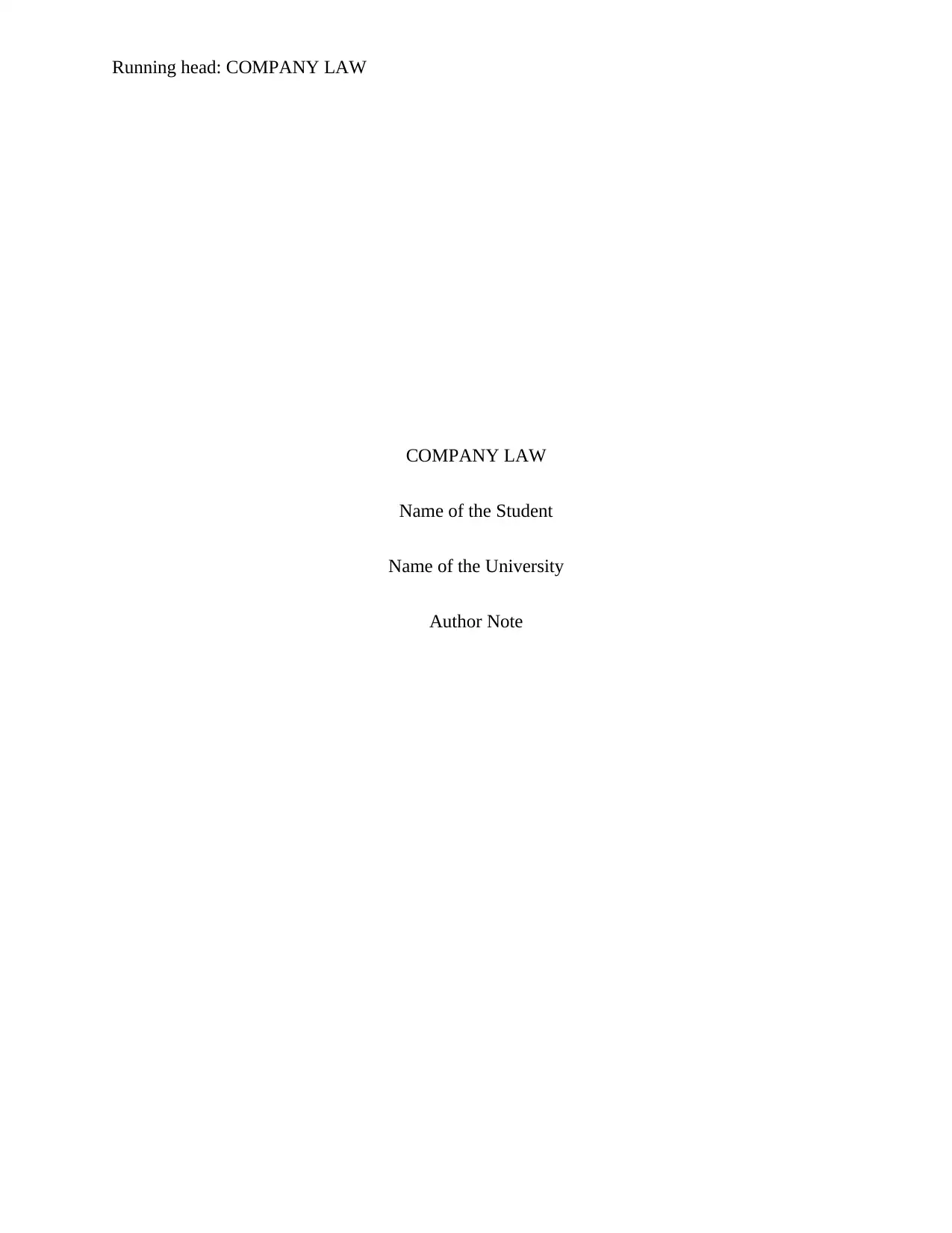
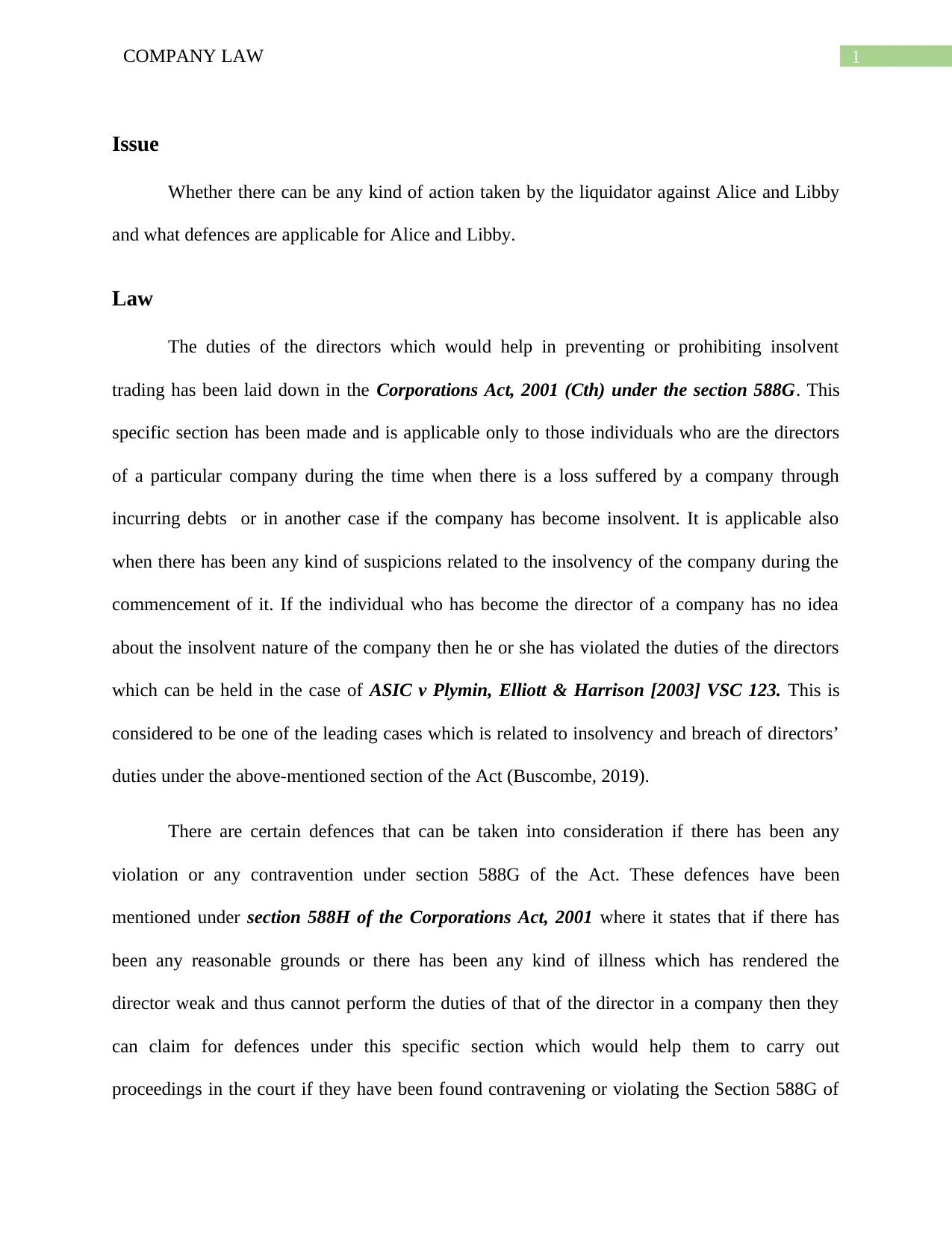
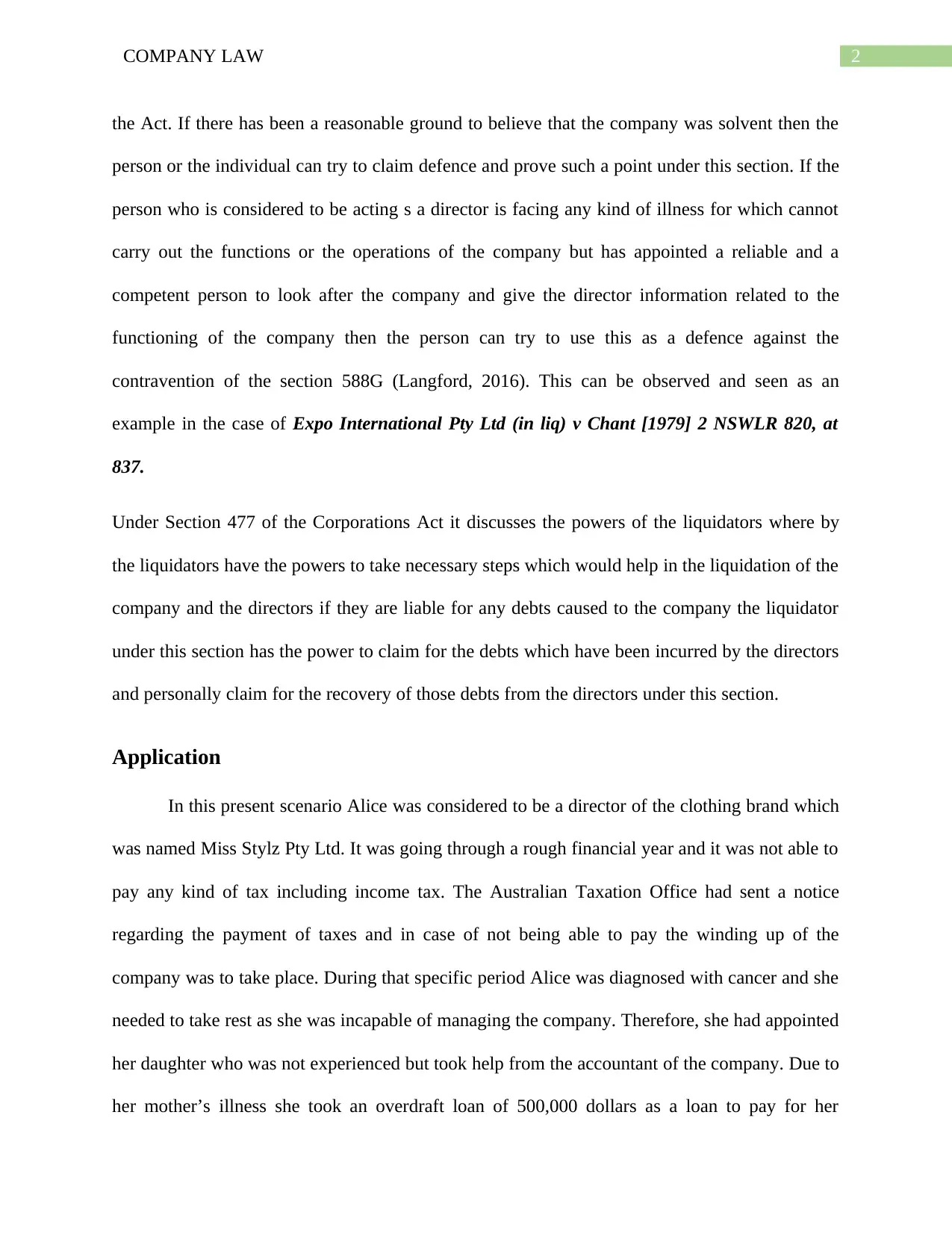

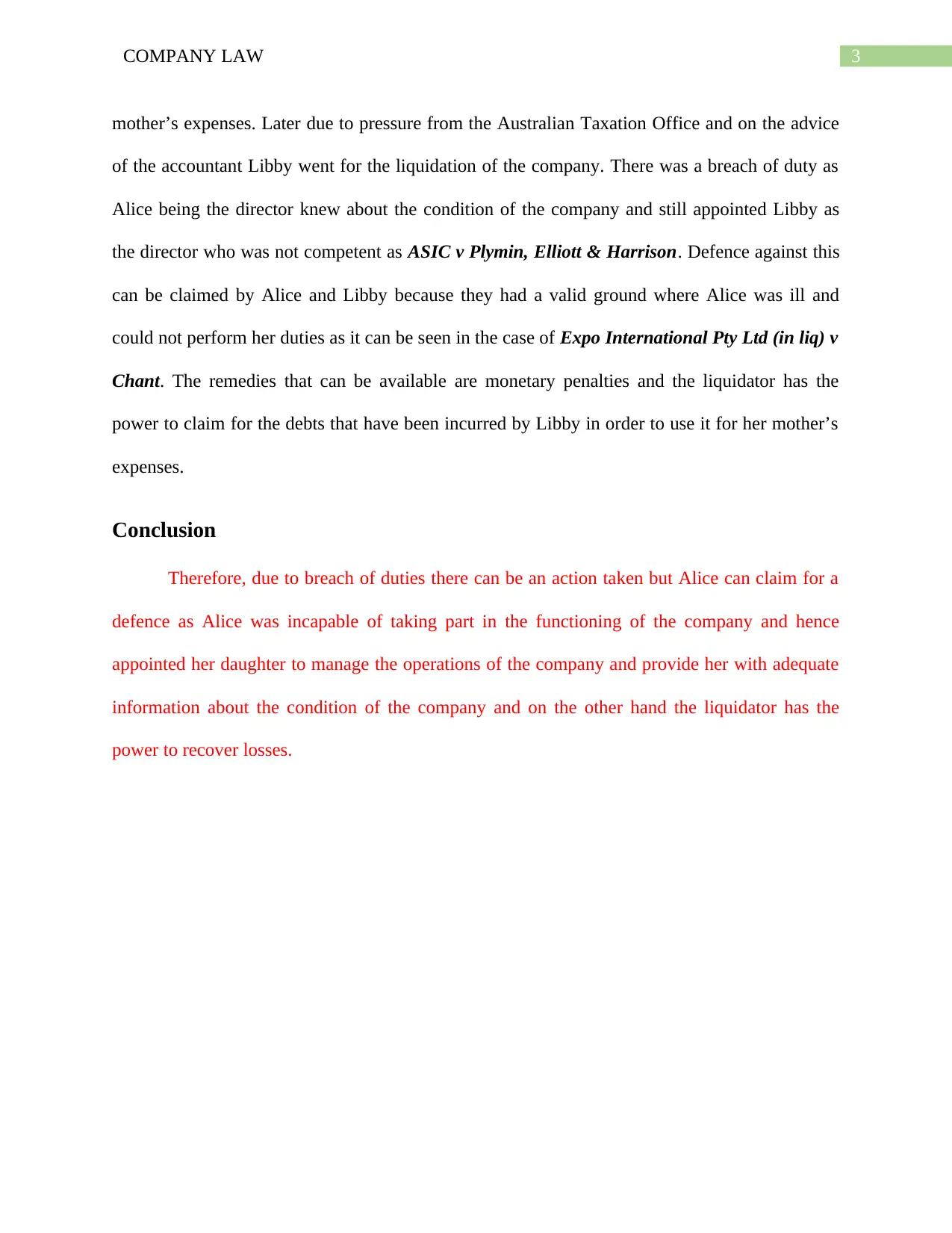
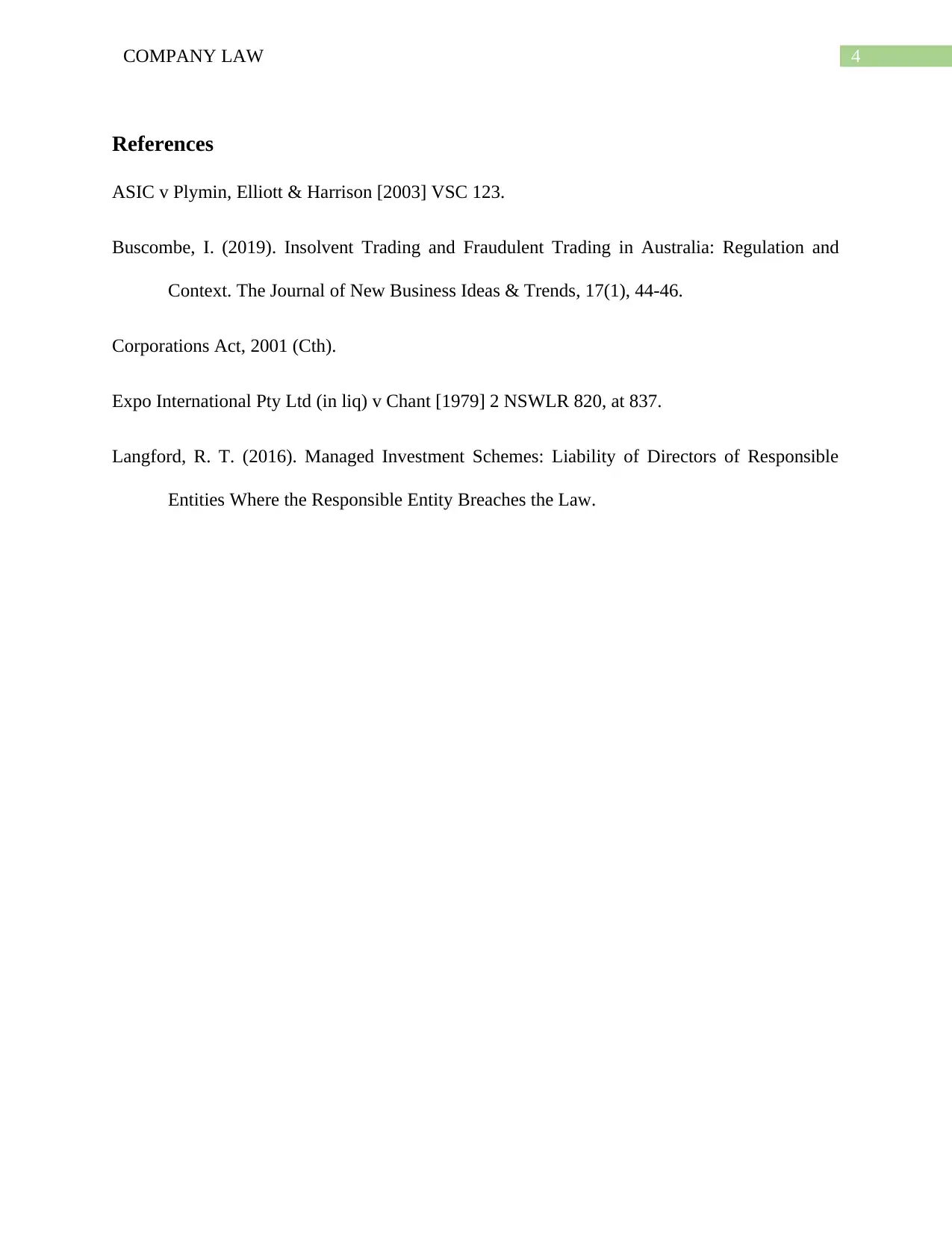






![[object Object]](/_next/static/media/star-bottom.7253800d.svg)